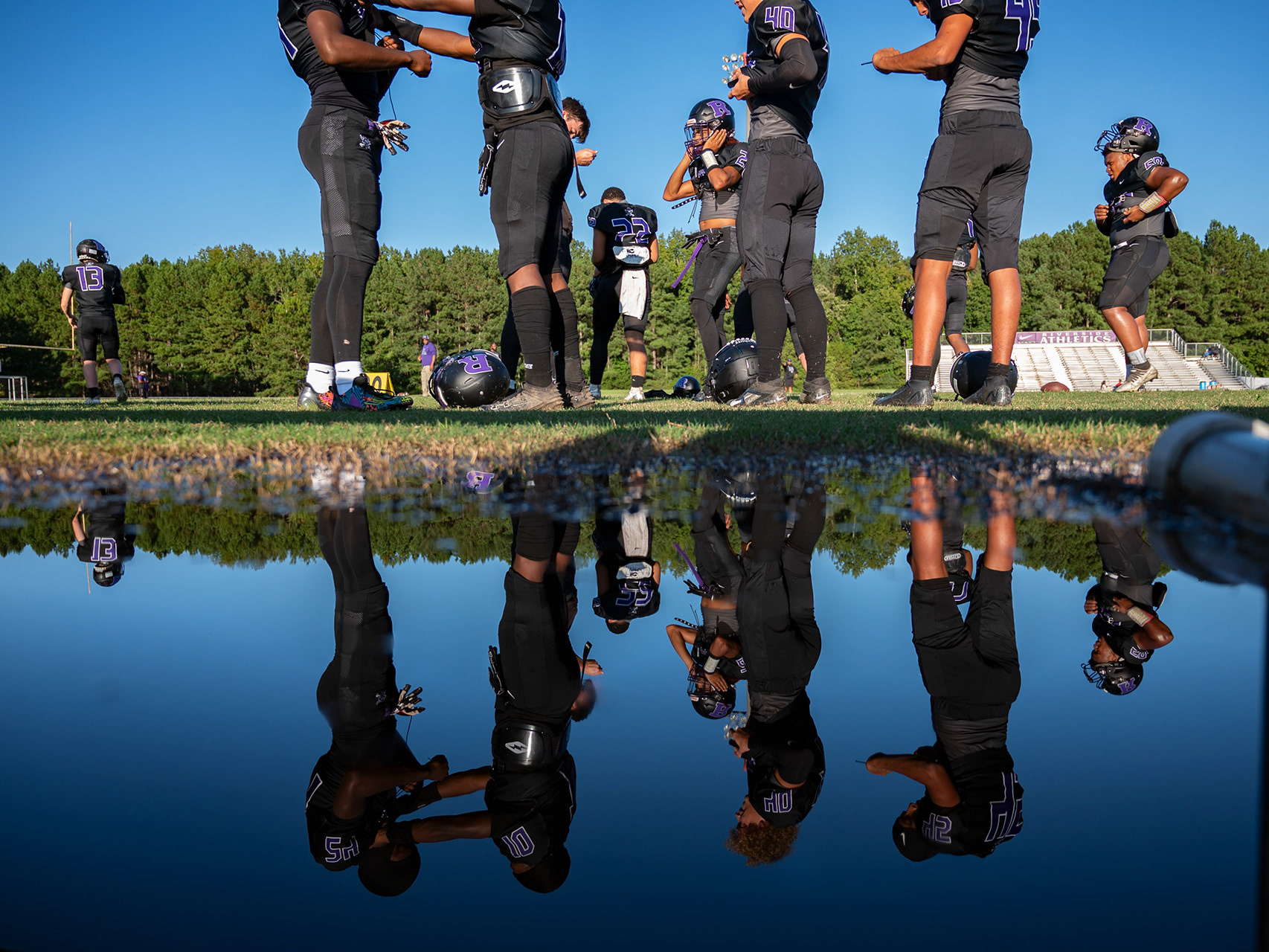“Water is always water, but there's so many different states that it can be in. But we always call it water, you know," said Sarah Lorenzi. "And I think that that's kind of how I see whether you're dressing masculine or feminine or whatever. It's still you, it's still you.”
Sarah Lorenzi’s fluidity of presenting themselves authentically every day comes from his honest relationship with herself and not listening to the outside noise saying, “It doesn’t matter what the [gender] spectrum is, what’s acceptable, what’s not…I just let go.” They took the time to learn themselves and compared their relationship with gender to water saying, “Water is always water, but there's so many different states that it can be in. But we always call it water, you know, And I think that that's kind of how I see whether you're dressing masculine or feminine or whatever. It's still you, it's still you.”
Part of Lorenzi’s journey to authentically express themselves has been to not subscribe to expectations to shave hair in places it is not deemed acceptable for women to have hair. “It's been hard to accept parts of it,” Lorenzi said. “On the inside, there was a little voice, whether it was like baby me or a magazine or my mom being like, that's gross. That's gross. It's unhygienic. It's not something that you should be doing.” But Lorenzi realized their relationship with femininity was not about listening to those voices and subscribing to those expectations. “And that's why I was so confused about it and rejected it for so long,” they said.
Lorenzi’s relationship to femininity has fluctuated throughout their life. “Femininity is usually something that I tend to experiment with because I rejected it for so long that I'm scared of it. And then when I do use femininity as comfort it is when I'm wearing other people's clothes" Lorenzi said.
"Oftentimes when I'm wearing accessories that are pretty feminine, it's because I know they're from a woman that I love and trust and respect their femininity and their idea of the feminine, because oftentimes I find it hard to draw it for myself.”
Lorenzi struggled to understand their relationship with gender for many years, “just not being able to look in the mirror and recognize yourself, I was like, I have to find a way to recognize myself without caring about how other people see me. And so I started saying, any pronouns are fine, like I go by any of them,” they said.
When Lorenzi was younger they struggled with acne. Their skin was a source of insecurity and makeup was a mask they hid behind. “Now I'm able to use makeup as something to enhance instead of something to hide,” they said.
Lorenzi performs with other UNC students in a band they created called “Braless” which is full of love and silliness, with a deep value for authenticity. This authenticity translates into the makeup Lorenzi wears as his iconic performance look. “What is the stage persona that I can feel authentic in?” they asked themselves.
Lorenzi prioritizes functionality when it comes to clothing, but also finds sentimental value in what they wear. “You can always carry pieces of people with you, even if they aren't in your life anymore,” she said. The pink shorts they are wearing were once owned by an old friend, their tank top belongs to her girlfriend, and the shoes were a gift from their parents that they designed themselves.
“I think when I talk about like wearing other people's clothing, like it's it's about sharing love,” Lorenzi said.
At this stage in their life, Lorenzi embraces experimenting with fashion. “It's kind of an homage to like all of the journey before,” they said. “It's trying to like, I guess, make up for lost time of like, of, like a little girl who didn't have a chance to experiment with clothes that she liked and never was like, supported to, like, feel good about herself and her own body image.”








